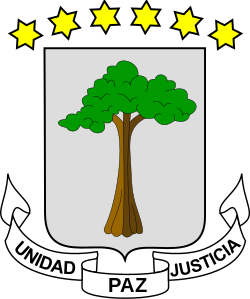| | |||||||||||||||||||||||||||||
| |||||||||||||||||||||||||||||
All 100 seats in the Chamber of Deputies 51 seats needed for a majority | |||||||||||||||||||||||||||||
| Turnout | 96.45% ( | ||||||||||||||||||||||||||||
|---|---|---|---|---|---|---|---|---|---|---|---|---|---|---|---|---|---|---|---|---|---|---|---|---|---|---|---|---|---|
This lists parties that won seats. See the complete results below.
| |||||||||||||||||||||||||||||
 |
|---|
Parliamentary elections were held in Equatorial Guinea on 25 April 2004. They were won by the Democratic Party of Equatorial Guinea of President Teodoro Obiang Nguema Mbasogo, which won 68 of the 100 seats in the Chamber of People's Representatives.
